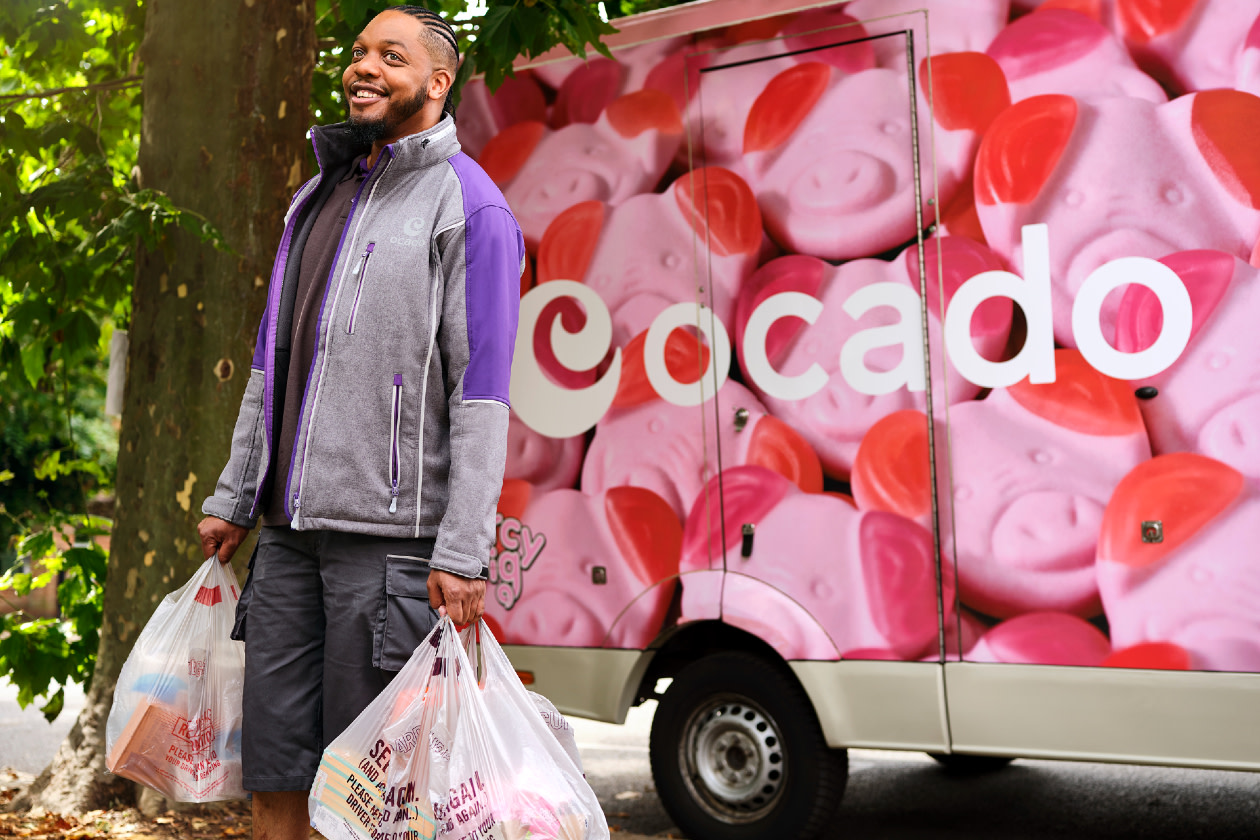Ocado Group reported a 13.2% rise in half year revenue to £674mn, with underlying cash profit up 76.5% to £91.8mn, ahead of expectations. Given an accounting change, Ocado Retail financials are no longer included in these numbers.
Ocado retail, the 50/50 joint venture with M&S, saw a 16.3% rise in revenue to $1.5bn. The business is still loss making, and Ocado recognised an £8.5mn loss as a result.
There was a free cash outflow of £83.2mn, an improvement on the £170.9mn outflow last year. Net debt was up 9% from the start of the year at £1.05bn.
There was no change to full year guidance, which points to mid-single digit % revenue growth for the Logistics business and around 10% growth for Tech Solutions.
The shares rose 13.0% in early trading.
Our view
Ocado issued a reassuring set of half year results that helped to ease investor fears over a slowdown in growth.
Ocado Retail, the grocery delivery business half owned by M&S, is doing well. Customer numbers have shot past the million mark, and volumes are improving as a result. In part, that’s thanks to M&S’ improved quality and value perception, which helps to lure more customers onto the website.
Ocado’s striving to expand its product range, increase delivery slot availability and is investing in keeping prices low to prevent customers switching to competitors. While we’re positive about progress, we must point out that this division’s is still loss-making and there’s no timeline for reaching the land of profitability.
There’s also potential legal action with M&S over a withheld £190mn performance payment, after pre-defined targets weren’t met. The saga remains ongoing and it’s something we’re following closely. Regardless of the outcome, it’s hard to imagine it will benefit relations.
Elsewhere, further growth relies on its so-called Technology Solutions business. Last we heard, this segment has seen some of its retail partners press pause on plans to open more Customer Fulfilment Centres (CFCs). That saw analysts trim their expectations for future growth, leaving the Group’s path to profitability a little unclear and denting investor sentiment.
CFCs are the cornerstone of Technology Solutions. The group charges third-party retailers to use its robotic systems. Hundreds of thousands of orders are processed each week, with the help of automated 'bots' scurrying around the trademarked grid systems.
Running operations through Customer Fulfilment Centres (CFCs) brings a host of cost savings and efficiency benefits that could offer a competitive advantage for those who can afford it. But the current economic outlook poses challenges, putting pressure on existing and potential partners to cut unnecessary spending.
The group is also under pressure to establish a long runway of CFC openings because Ocado is stumping up hundreds of millions to fund these centres. This has led to significant fundraising from shareholders. Medium-term plans for free cash flow generation from existing CFCs seem ambitious to us, and we can't rule out Ocado burning through its available liquidity faster than planned.
We should be clear - Ocado has an amazing product. However, the group is still loss-making. As it builds scale and partnerships mature, profits and free cash should flow. We just aren't convinced this will happen in the projected timeframe. This could result in further knocks to the valuation, which has already fallen significantly in recent years on a price-to-sales basis.
Environmental, social and governance (ESG) risk
The retail industry is low/medium in terms of ESG risk but varies by subsector. Online retailers are the most exposed, as are companies based in the Asia-Pacific region. The growing demand for transparency and accountability means human rights and environmental risks within supply chains have become a key risk driver. The quality and safety of products as well as their impact on society and the environment are also important considerations.
According to Sustainalytics, Ocado’s management of ESG risk is average.
The group has an adequate environmental policy and its whistleblower programme is strong. However, ESG reporting falls short of best practice and the group lacks regular risk assessments on data privacy.
Ocado key facts
All ratios are sourced from LSEG Datastream, based on previous day’s closing values. Please remember yields are variable and not a reliable indicator of future income. Keep in mind key figures shouldn’t be looked at on their own – it’s important to understand the big picture.
This article is not advice or a recommendation to buy, sell or hold any investment.No view is given on the present or future value or price of any investment, and investors should form their own view on any proposed investment.This article has not been prepared in accordance with legal requirements designed to promote the independence of investment research and is considered a marketing communication.Non - independent research is not subject to FCA rules prohibiting dealing ahead of research, however HL has put controls in place(including dealing restrictions, physical and information barriers) to manage potential conflicts of interest presented by such dealing.Please see our full non - independent research disclosure for more information.


